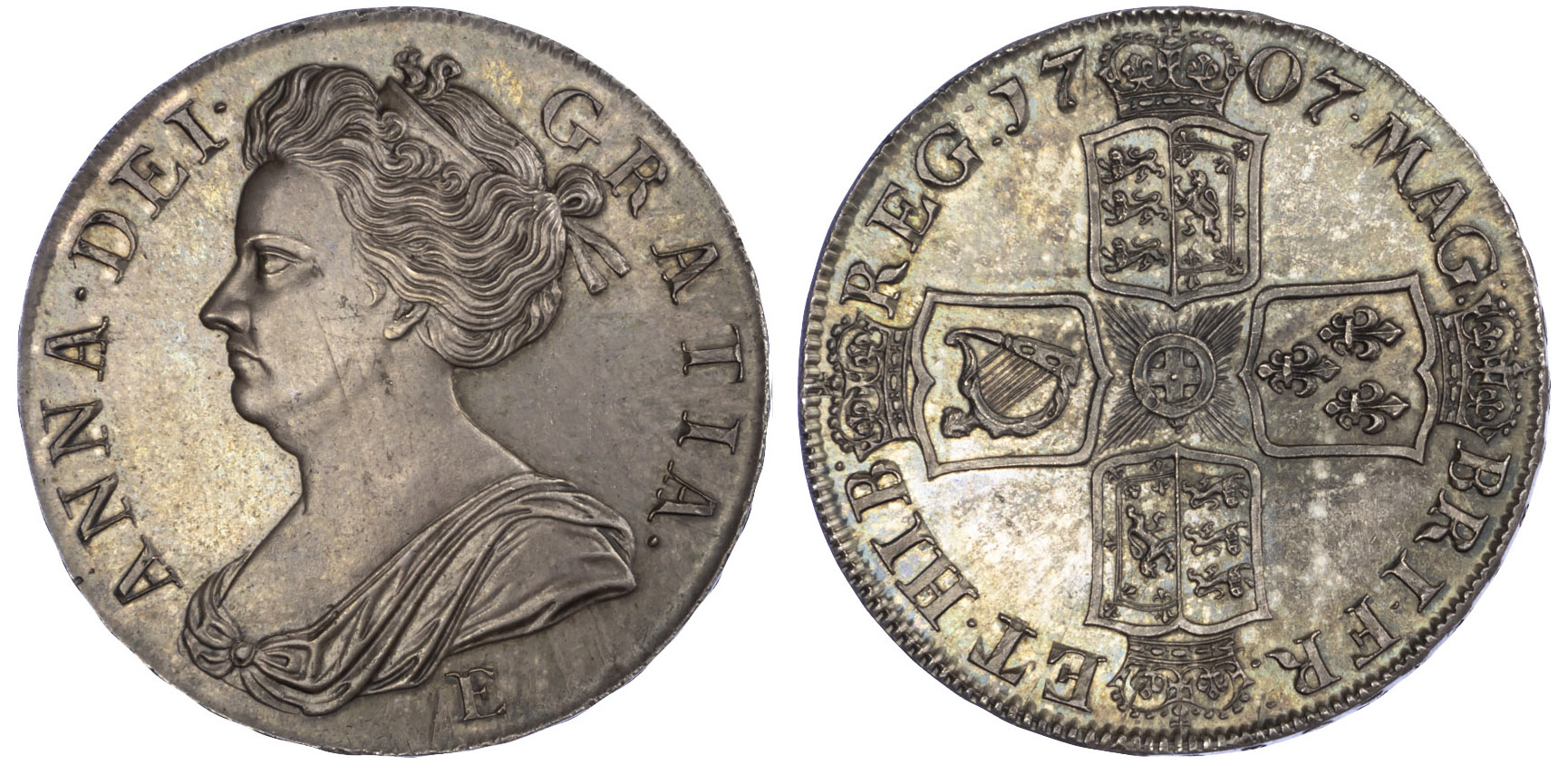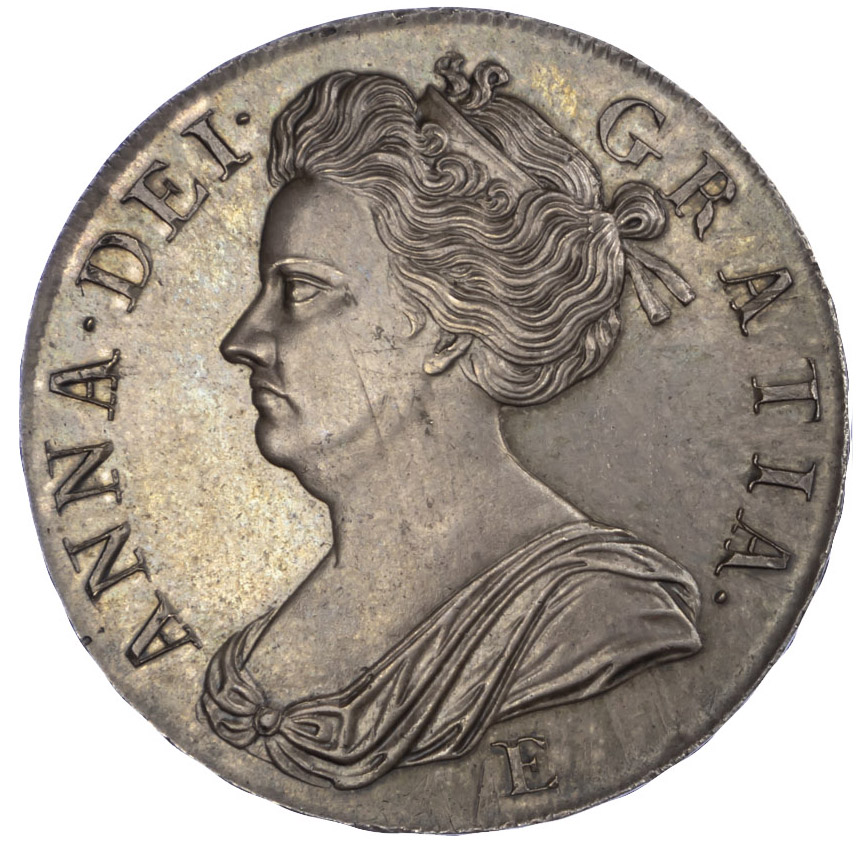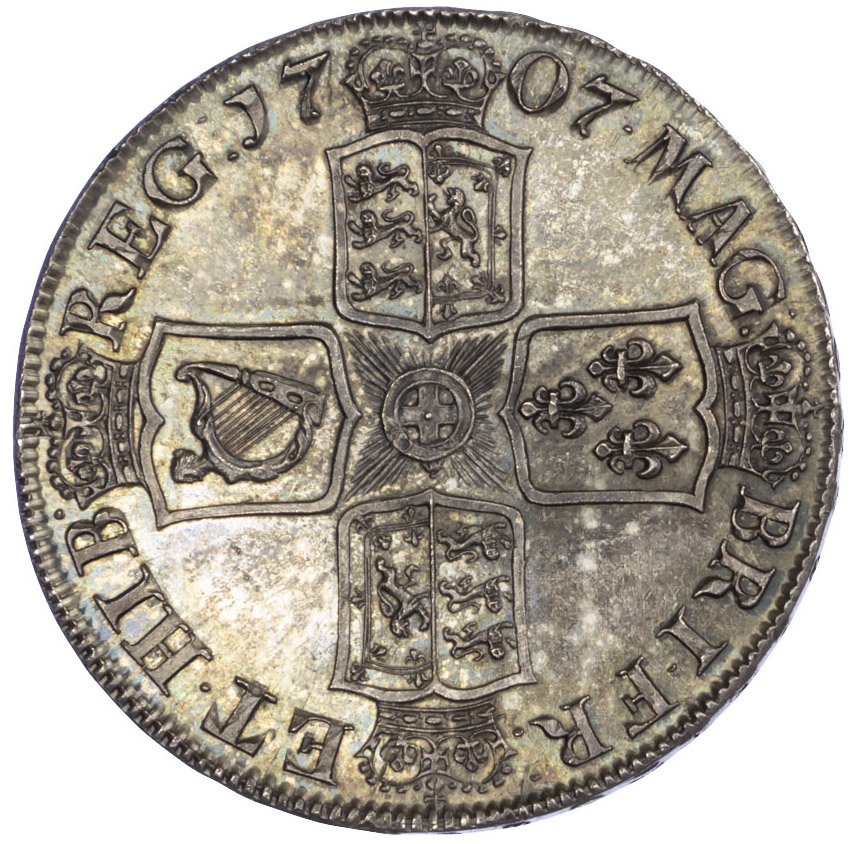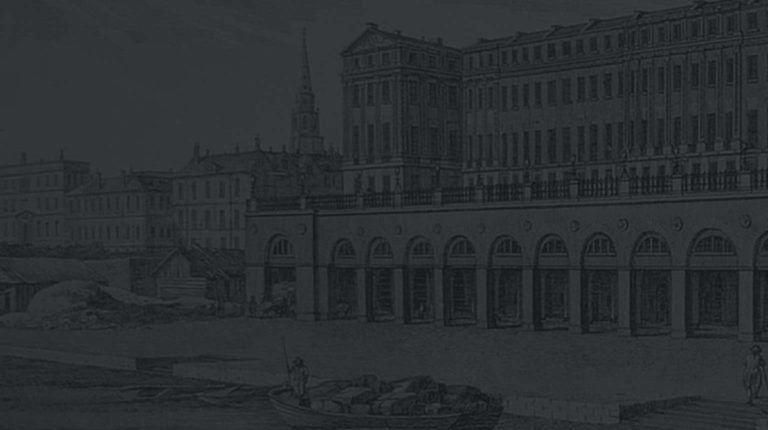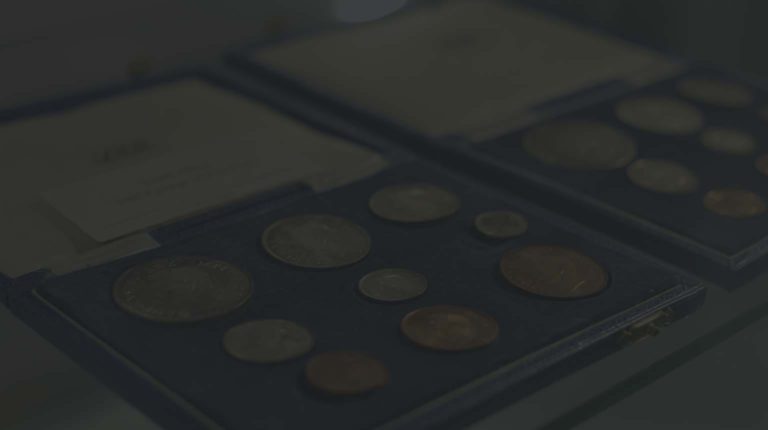Description
Anne (1702-14), Crown, 1707, Edinburgh Mint, E below, second draped bust facing left, toothed border both sides, legend reads ANNA. DEI. GRATIA. Rev, crowned cruciform shields, garter star struck in centre, date either side of top crown, legend surrounding, .MAG: BRI: FR: ET. HIB: REG: edge inscribed in raised letters, *DECVS* ET* TVTAMEN** ANNO* REGNI* SEXTO* (Bull.1352; ESC.103; S.3600). The reverse die not recorded by Bull see Numismatic Chronicle, Apr 1850-Jan. 1851, pp. 6, this coin).
Choice, mint state. An exceptional example with proof like qualities, the hair boasting incredible detail and texture, mirrored fields both sides with an outstanding portrait. An equally impressive supporting provenance. If not the finest, must surely rank as of one the finest in existence.
Ex. Dear, collection dispersed by Spink (acquired 10 July 1964) – “the finest known” – £150.0.0
Ex. John Crichton-Stuart, 5th Marquess of Bute, 11 June 1951, lot 275 (part) – “in mint condition and very rare thus” –
£12.10.0(Dear) thence by descent ~
Ex. John Stuart, 3rd Earl of Bute (1713-1792) 6th Prime Minister of Great Britain, and tutor to the future King George III
After the death of the 2nd Marquess of Bute in 1848, an academic with numismatic interests, Jonathan Rashleigh, was allowed to view the Bute collection of coins. He subsequently published “A brief notice of the Bute collection of Medals and Coins”, noting that the collection had originally been formed by the 3rd Earl of Bute, John Stuart (1713-1792) and consisted of some 4,700 pieces.
He also noted that the finest specimens in the English part of the collection were – “a small naval medal, in silver, of the Commonwealth, by Simon; a silver pattern for a farthing of Charles II., with three pillars; a crown and halfcrown of Queen Ann, with ‘E’ below the bust; and a shilling and sixpence of the same queen, with ‘E’ below the bust. These last four are as fi ne as (if, indeed, they are not) patterns and are as beautiful (especially the two last) as if just from the mint.”.
It is almost certain that the ‘Anne Crown with an E below the bust’ is the coin listed here and this not only confirms its whereabouts a further century before the collection was sold, but also emphasises the importance of this “1707 Edinburgh coinage set” to the collection as a whole. This symbolic Edinburgh mint series, the first to be struck after the Act of Union between the crowns of England and Scotland in May 1707, is even more relevant when one considers that John Stuart, as private tutor of King George III was to become First Lord of the Treasury (Prime Minister) of Great Britain, and as such the first Scotsman to hold the office. Given his interest in coins and closeness to the king, it is very feasible that these coins were presented to him – although, unfortunately no records survive at Mount Stuart to substantiate this. Moreover, John Stuart’s grandfather Sir James Stuart had been passionately against the Union and left Parliament after its ratification. Consequently, it is therefore very unlikely that the ‘set’ was acquired from the mint by this earlier Stuart family bearing in mind their thoughts on Union.

